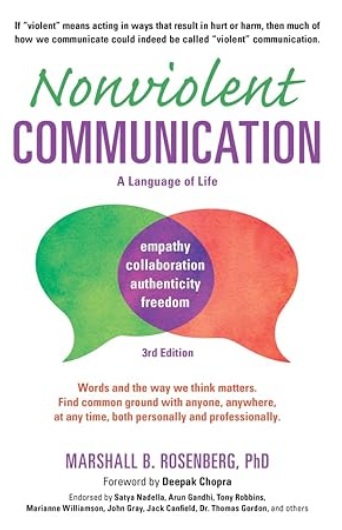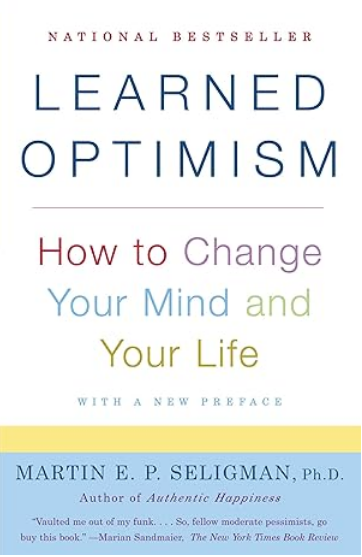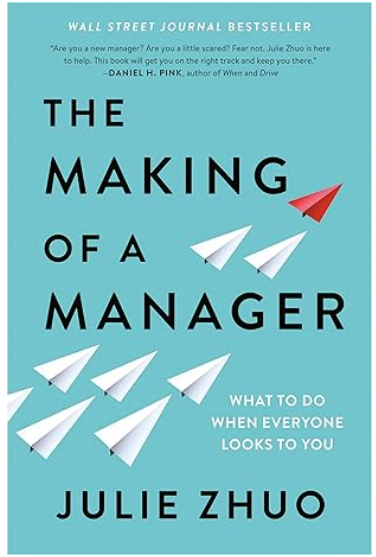When it comes to personal development, knowing which skills matter is only half the battle.
The real magic happens when you actually build them. And contrary to what some might think, developing these career-boosting abilities doesn’t require years of expensive courses or dramatic life overhauls.
What it does require is intention, consistency, and the right strategies. Let’s break down exactly how to build each of these seven powerhouse skills in ways that fit into your actual life.
7 Ways to Build Personal Development Skills to Boost Your Earning Potential
This is the follow-up to our original post on 7 Important Personal Development Skills That Can Boost Your Earning Potential. If you’re wondering which skills can accelerate your career, check that out first.
Ready to dive into the how? Let’s get practical.
Disclosure: As an Amazon Associate, we earn a commission when you click the link and finalize a purchase (At zero cost to you.). We participate in programs like these to keep providing our readers free daily motivational content.
1. People Skills: Your Career’s Secret Weapon
Why This Skill Transforms Your Earning Power
Let’s cut to the chase: people skills aren’t just nice to have – they’re career rocket fuel.
Over 90% of employers rate communication as very important when making hiring decisions. Meanwhile, teamwork consistently ranks as one of the most sought-after attributes across industries.
However, what makes this even more compelling is that Learning and Development leaders consistently flag communication and people skills as enduringly in-demand, meaning they’re future-proof in an age when AI is reshaping everything else.
Your Action Plan for Building People Skills
The Weekly Listening Rep
Start small but be consistent.
This week, commit to asking two open-ended questions before offering your opinion in any conversation. Then practice reflecting back on what you heard. It sounds simple, but this habit trains your brain to truly listen instead of just waiting for your turn to talk.
Master the 1:1 Formula
Whether you’re managing others or just collaborating on projects, use this simple cadence for meaningful conversations:
Context (what’s happening) → Goal (what we’re aiming for) → Blocker (what’s in the way) → Commitment (next steps).
This structure keeps conversations productive and builds your reputation as someone who gets things done.
Level Up Your Communication Toolkit
If you want to dive into this skill, these two books are excellent options to get you started.

Crucial Conversations isn’t just another business book. It’s a framework for navigating high-stakes dialogue that can make or break your career.
The companion training takes it even deeper.

For those ready to go beyond the basics, Nonviolent Communication offers powerful techniques for empathy and de-escalation that set you apart in any workplace.
2. Confidence: The Skill That Pays for Itself
Why Confidence Directly Impacts Your Bank Account
Here’s a sobering reality: 54% of people didn’t negotiate their most recent salary, according to Glassdoor research. But here’s the encouraging flip side. When people do ask, 70% receive at least some increase.
The math is simple: confidence to advocate for yourself literally pays. And unlike many career advantages, this one is entirely within your control.
Building Unshakeable Self-Advocacy
Create Your Mastery Moments
Every week, write down three wins. Big or small. Then practice talking about them out loud. Seriously, rehearse your ‘raise script’ in the mirror. It feels awkward at first, but this practice makes the real conversation feel natural and confident.
Build Your Evidence Pack
Before any important ask, whether it’s a raise, promotion, or new opportunity, compile metrics, outcomes, and testimonials that showcase your value.
Numbers don’t lie, and having them at your fingertips transforms nervous requests into confident presentations.
Master the Ask
Harvard Business Review’s guide “How to Ask for a Raise” provides a solid foundation, complete with scripts and timing strategies.
Pair this with Investopedia’s step-by-step prep guide for a comprehensive approach that takes the guesswork out of salary negotiations.
3. Attitude: The Multiplier Effect on Everything Else
Why Your Attitude Is Your Competitive Advantage
Gallup’s research reveals that engaged teams are roughly 23% more profitable than their disengaged counterparts. But here’s what’s really interesting: engagement isn’t just about loving your job.
It’s about approaching challenges with the right mindset, which directly correlates to performance and, yes, earning potential.
Teams with positive, engaged attitudes also show lower turnover and higher productivity, making attitude-driven individuals incredibly valuable to employers.
Rewiring Your Professional Mindset
The ABC Journal Method
Start each day with a simple practice: when facing adversity, write down:
- the Adversity (what happened)
- your Belief (your interpretation)
- the Consequence (how it affected you)
This cognitive reframing technique helps you recognize thought patterns that either fuel or drain your professional energy.
Conduct Weekly Energy Audits
Every Friday, list tasks that energized you versus those that drained you. Then (and this is crucial), renegotiate one energy drain each week.
Maybe it’s delegating, automating, or simply approaching it differently. Small shifts compound into major attitude improvements.
Read the Research

Learned Optimism by Martin Seligman isn’t feel-good fluff.
It’s evidence-based psychology that provides concrete exercises for developing a more resilient, opportunity-focused mindset. The techniques are practical and proven to work.
4. Written Communication: Your 24/7 Professional Representative
Why Words on Screen Shape Your Worth
Employers rate written communication as very important for new hires.
But poor workplace communication costs real money – a 2023 Grammarly/Harris Poll study estimated $12,506 per U.S. employee per year in lost productivity due to communication failures.
The Project Management Institute identifies communication breakdowns as a major cause of project failure, especially in cross-functional roles. Your ability to write clearly and persuasively can literally save projects and budgets.
Transforming Your Written Impact
The 5-Sentence Email Framework
Stop burying your point in paragraph three.
Structure every important email like this:
Purpose (why you’re writing) → Context (relevant background) → Ask (what you need) → Next Step (what happens now) → Deadline (when you need it).
This format respects everyone’s time and gets results.
Develop Your Personal Style Sheet
Create a simple guide for yourself:
- preferred tone
- words to avoid
- templates for common situations
This consistency builds your professional brand and makes writing faster and more effective.
Invest in Structured Learning
Coursera’s Business Writing course provides structured practice with real feedback.

For ongoing reference, keep the HBR Guide to Better Business Writing and On Writing Well within arm’s reach. These aren’t just books – they’re career tools.

5. Adaptability: Your Insurance Policy Against Irrelevance
Why Flexibility Is Your Future-Proofing Strategy
The World Economic Forum’s 2025 skills research delivers a wake-up call: roughly 39% of core skills will change by 2030, with AI reshaping roles across industries.
But here’s the opportunity: resilience, flexibility, and agility rank among the top skills rising in importance.
Translation? Adaptability isn’t just helpful, it’s essential for staying employable and competitive in the years ahead.
Building Your Adaptability Muscle
The Two-Track Learning System
Run parallel learning streams: one course or skill development focused on excelling in your current role, and another exploring future technologies or AI applications in your field.
This approach keeps you grounded while preparing for what’s next.
Embrace Strategic Stretch Projects
Volunteer for one project outside your comfort zone each quarter.
The key is doing a post-mortem afterward – what did you learn about yourself, the business, and how to tackle unfamiliar challenges? This reflective practice accelerates your adaptability development.
Master the Meta-Skill
Take Coursera’s “Learning How to Learn” course.
It teaches mental models, information chunking, and anti-procrastination techniques that make acquiring new skills faster and more effective. Think of it as upgrading your brain’s operating system.
6. Integrity: The Foundation of Long-Term Success
Why Trust Translates to Career Capital
Trust is a career force-multiplier that’s often underestimated. Edelman research shows 79% of respondents trust their employer, and trust strongly influences employee loyalty and advocacy – which translates to opportunities, recommendations, and advancement.
During the Great Resignation (2021), toxic culture was 10.4 times more predictive of employee attrition than compensation. This means integrity-driven behaviors don’t just feel good. They make you indispensable in organizations focused on retention and culture.
Building Your Integrity Foundation
Create Your Personal Code
Write down your core values, identify your red lines, and provide specific examples of how these show up in your work. Share this with your manager or mentees.
This transparency builds trust and sets clear expectations for how you operate.
Default to Transparency
Make documentation your superpower.
Record decisions, trade-offs, and your reasoning process. This practice builds trust over time and protects you when projects get complicated or priorities shift.
Study Ethical Leadership
University of Virginia Darden School of Business’ “Ethical Leadership Through Giving Voice to Values” course provides frameworks for navigating complex workplace situations while maintaining your integrity.
It’s particularly valuable for anyone in leadership or aspiring to leadership roles.
7. Leadership: The Ultimate Career Accelerator
Why Leadership Skills Command Premium Pay
The leadership gap is real and profitable.
DDI’s Global Leadership Forecast reveals that only 12% of companies feel confident about their leadership pipeline. Companies with strong leadership development programs are roughly three times more likely to be top financial performers.
This gap represents opportunity: developing leadership skills positions you for roles with higher responsibility and compensation, regardless of your current level.
Growing Your Leadership Presence
Start Where You Are
You don’t need a fancy title to practice leadership.
- Volunteer to lead one recurring meeting or take point on a small project.
- Create a 90-day plan with specific success metrics.
Leadership is about influence and results, not hierarchy.
Perfect the Art of Development
Commit to weekly 1:1s with anyone you influence:
- direct reports
- project team members
- junior colleagues
Use this agenda: goals review, feedback exchange, blocker removal, and growth discussion.
This consistency builds your reputation as someone who develops others.
Learn from a Modern Master

The Making of a Manager by Julie Zhuo is a tactical, modern playbook that skips the fluff.
It’s particularly valuable because it addresses leadership in today’s collaborative, tech-forward work environment.
The Reality Check: Challenges You’ll Face
Building these skills requires consistent effort, and progress isn’t always linear.
You might feel awkward practicing new communication techniques or uncomfortable advocating for yourself initially.
The beauty of focusing on personal development, though, is that these challenges become part of the growth process.
- Each awkward conversation makes the next one easier.
- Every stretch project builds your confidence for bigger opportunities.
Your Personal Development Investment Strategy
Think of skill building like investing: small, consistent contributions compound into significant returns over time.
The professionals who command higher salaries and better opportunities aren’t necessarily the smartest or most talented; they’re often the ones who’ve systematically developed the interpersonal and leadership capabilities that make them indispensable.
Start with the skill that feels most natural or urgent for your current situation. Build one habit at a time. Track your progress not just in skill development, but in the career opportunities and financial outcomes that follow.
Your future earning potential isn’t just about what you know.
It’s about how effectively you can communicate, adapt, lead, and build trust with others.
These seven skills give you the toolkit to not just survive in your career, but to thrive and command the compensation you deserve.



















